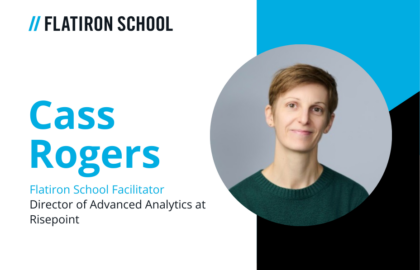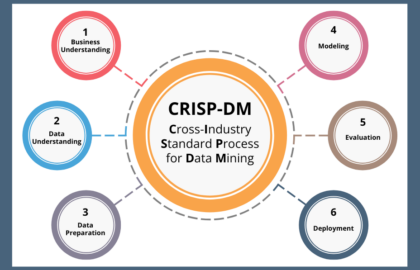Key takeaways:
- The importance of data analytics is skyrocketing at companies large and small all across the globe — and the job demand is following suit
- Data analyst jobs are high-paying, expected to grow extremely fast for at least the next decade, and considered future-proof.
- Math and analysis skills are crucial for data analysts, as is communicating data findings and insights. Familiarity with languages like SQL or Python is also useful.
- There are 3 paths to becoming a data scientist: earning a degree, attending a data bootcamp, or self-teaching.
- Focusing on a specialty, building a portfolio, and getting a few certifications is also helpful when launching your career.
What Is Data Analytics?
Data is eating the world. Every passing day brings more information into the world.
Data analytics is the process of finding meaningful stories in data — and making decisions based on those stories. Through modeling, cleansing, and transforming data, data analytics finds trends and insights to help business leaders make data-driven business decisions.
From business analytics to data visualization, any role related to data analysis has one common goal: to give meaning to large data sets. This is what makes data analysis such a popular role. Leaders are eager to use their huge swaths of data to improve their organizations and beat out competitors. Through regular reports and ad hoc analysis, analysts are able to do just that while supporting greater transparency in an organization. In 2021, data analytics is at the forefront of — and critical to — the success of any business.
What Is A Data Analyst?
Data analysts analyze a company’s data to identify trends, find insights and solutions based on that data, and project future outcomes.
Analysts have been around long before big data, which is why data analyst roles are well-defined. They need to be effective communicators because they work with different teams — each with varying technical experience — and strong presentation/visualization skills to convey the insights they find. Data analysts don’t need to have advanced coding skills but usually have experience with analytics software, data vis, and data management programs. Even though advanced coding skills aren’t absolutely critical to an analyst’s success — coding and programming is usually in a data scientist’s purview — it’s not rare for an analyst to have Python, SQL, or R proficiency.
An analyst is a storyteller finding truths and insights in data. For example, you can see the work of a data analyst in projecting future sales or understanding the success of an ad campaign.
What Does A Data Analyst Do?
Data analysts track the entire lifespan of data in an organization. As they gather data and project requirements and execute decisions based on that data, an analyst supports their team as a technical expert.
Often, analysts enter a long-term project after the scope has been determined, but at some point, they will work with stakeholders and business leaders to determine requirements for a new initiative.
After collaborating with a database or IT team and stakeholders from other departments, they’ll then determine KPIs (key performance indicators), or metrics, to begin tracking. These will be the foundation of the dashboard and data gathering process you’ll begin in the next step — and the foundation of measuring company success.
Dashboard development can sometimes be done by a senior analyst or software engineer before being handed off to another data analyst to manage. Otherwise, building the dashboard is a common requirement for many roles. Some common dashboarding tools are Excel, Tableau, PowerBI, Adobe Analytics, and Looker.
Most data analyst roles focus on these day-to-day requirements: monitoring and updating the dashboard with new, incoming data, along with responding to requests from stakeholders to answer questions about business decisions.
Some roles also focus on the development of more complex dashboards, or using statistical methods to answer questions; however, these will be more advanced, senior positions. Other responsibilities can include:
- interpreting trends from historical data
- preparing summary reports
- Information management
- data cleansing
- data mining
- developing data pipelines
What Is The Difference Between a Data Analyst and a Data Scientist?
Analysts and data scientists coexist in the same lane, but there are some major differences between the two.
Data analysts search for patterns and insights in existing data. Their roles often focus on building or managing dashboards and deep expertise on a specific dataset to support management in decision-making. They are present in nearly every department in an organization and support managers with everyday decision-making.
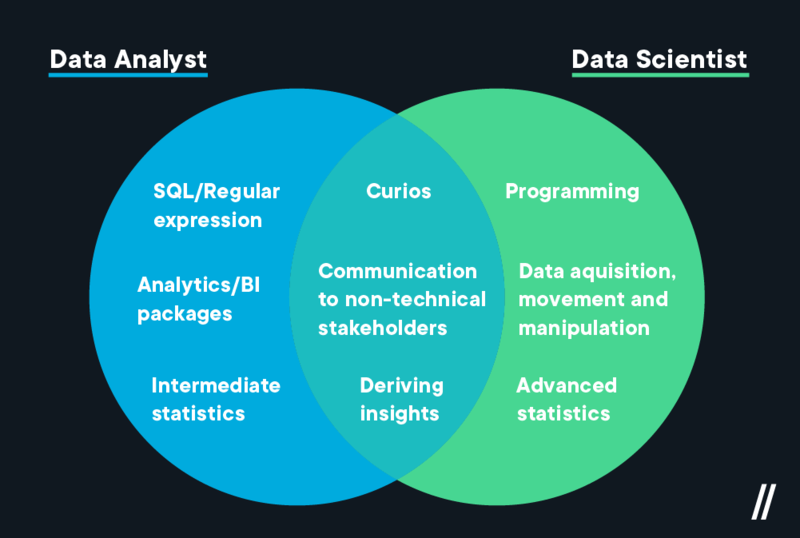
Data scientists, on the other hand, leverage complex math and algorithms to predict, recommend, classify data, and more. Data analysis can optimize a business, and data science has the potential to fundamentally change what an organization can accomplish or has to offer.
Analysts are often embedded in a specific department and work alongside peers with different skills. Data scientists, however, are often clustered together to tackle big problems — usually with a close connection to senior or C-level management.
Because of the high profile and complex nature of data science, these roles tend to be more senior and/or lucrative. There are fewer of them, so they pay more and are much more challenging to obtain. Data scientists also tend to be technical experts, with expertise in programming languages like Python and SQL, whereas data analysts might not be coding experts.
That said, data analysis roles often feed into data science roles as an analyst grows and learns more skills through work experience.
Outside of typical business intelligence, data scientists also work with machine learning and deep learning, whereas analysts do not.
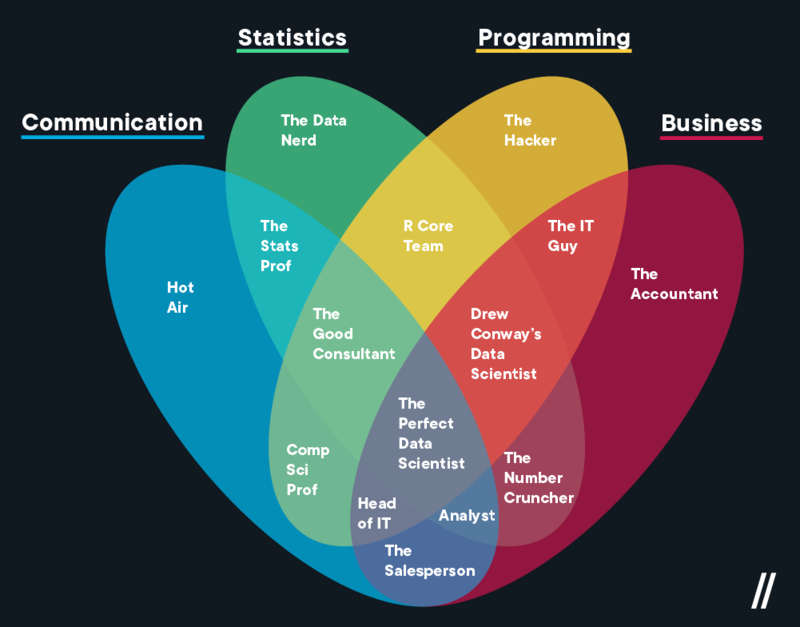
Data Analyst Job Outlook
Data literacy is growing quickly as many companies begin to outgrow their data systems. Mass migration to cloud data storage and the rapid increase in data-gathering tools means organizations are primed to hire data professionals to leverage that data.
- According to Villanova University, 82% of businesses plan to expand functions that require data analysis skills in upcoming years.
- The Bureau of Labor Statistics also projects a 25% job growth for operations analysts and 27% growth for mathematical science roles between 2019 and 2029.
- It projects a 4% increase for jobs overall, meaning data jobs are expected to grow over 6x faster than the market.
Governments and politics are also following the trend with programs like the Digital Analytics Program and Tech for Campaigns. Expect to see continued growth of data roles in all areas.

How Much Do Data Analysts Make?
All data professionals are relatively future-proof. Data analysis is a well-paying job, especially as you progress in your career or eventually move into data science territory. The average salaries for data analysts across the country are $67k, according to ZipRecruiter.
As with any profession, salaries vary based on experience and location. Below are the average salaries for data analysts in major cities across the United States.
New York City
ZipRecruiter: $80k; Indeed: $76k; Glassdoor: $67k; PayScale: $67k
San Francisco
ZipRecruiter: $71k; Indeed: $91k; Glassdoor: $85k; PayScale: $81k
Seattle
ZipRecruiter: $82k; Indeed: $78k; Glassdoor: $67k; PayScale: $67k
Washington, D.C.
ZipRecruiter: $66k; Indeed: $87k; Glassdoor: $69k; PayScale: $67k
Chicago
ZipRecruiter: $75k; Indeed: $74k; Glassdoor: $61k; PayScale: $62k
Boston
ZipRecruiter: $70k; Indeed: $79k; Glassdoor: $66k; PayScale: $65k
Miami
ZipRecruiter: $58k; Indeed: $54k; Glassdoor: $59k; PayScale: $60k
Los Angeles
ZipRecruiter: $65k; Indeed: $71k; Glassdoor: $67k; PayScale: $64k
Austin
ZipRecruiter: $63k; Indeed: $73k; Glassdoor: $61k; PayScale: $60k
What Skills Do You Need To Become A Data Analyst?
Hard skills
To succeed as a data analyst, you should be a Microsoft Excel expert and dashboarding/visualization tools like Tableau.
Some analysts are proficient in programming languages like Python, SQL, or R, but it’s not common.
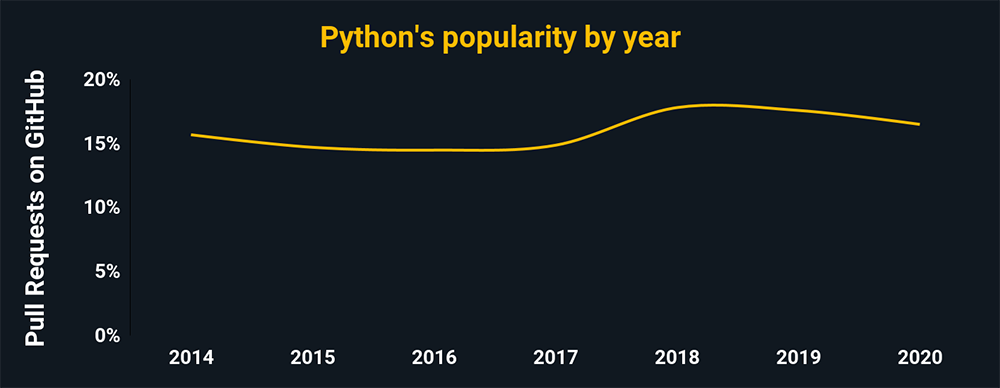
Python is a free, open source programming tool that can be used to analyze large datasets. Combined with another tool, Jupyter Notebooks, you can explore, clean, and visualize large CSV files. Python can also help you connect to APIs or gather data by scraping the web.
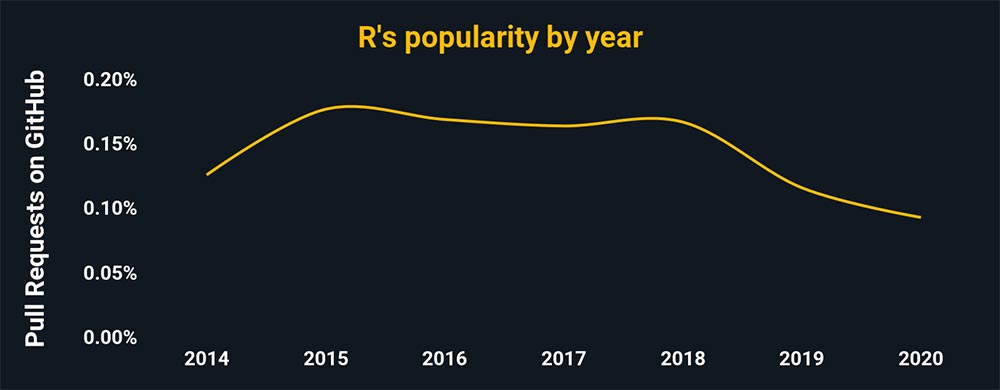
R is another free programming tool used to mine and analyze data. Python and R are both popular tools, and work very similarly. There’s an ongoing debate about which tool is better for data analysis and science, but choosing one is purely preference.
SQL is a querying programming language. It’s the most common tool for data analysts, after Excel, and you can use it to retrieve or change data stored in a database. Fundamental SQL questions are common interview questions, so make sure you’re familiar with with this language.
More advanced data analyst roles will require familiarity and experience with Hive, cloud technologies, and A/B testing methodologies.
Since data analysts work inside an organization’s data ecosystem, knowledge of database systems is also a great help.
Soft skills
Data analysts also translate technical information for non-technical stakeholders and vice versa, which makes communication skills crucial. Often, the people who need to use data the most in an organization are not the data-savvy. It’s a data ananlyst’s job take their needs and identify an answer from their data.
Learning basic business knowledge and understanding the goals of your organization are critical in creating solutions that are meaningful and sustainable.
Practical skills
Beyond the technical skills, you’ll also need a strong foundation in research methods, statistics, software lifecycle, college-level algebra, and common business problems and communications.
How Do You Become A Data Analyst?
To become a data analyst, you’ll need to demonstrate experience with the required hard and soft skills, along with awareness of the key practical concepts noted above.
You can do this with a combination of college, bootcamp, certifications, or self-teaching. Without certifications or a diploma of some sort, hiring managers may give you a technical assignment during the interview process to confirm your abilities. Be prepared to demonstrate your skills and understanding of core data analysis concepts.
Your interviewers will also largely be non-technical managers and would like to see that you have a passion for data and the future of analytics. These conversations with non-technical hiring managers are where soft skills like communication are especially important.
Can You Become A Data Analyst Without A Degree?
There are no specific degree requirements you need to become a Data Analyst. What’s more important than a formal degree, is evidence that you have the Data Science skills needed to perform on the job.
If you’re looking to become a data analyst with no experience, college may seem an obvious path. A college education provides you with a holistic, philosophical, and broad background behind data analysis and the skills needed to become a data analyst. Nobody would argue with the value of a good college education.
But, college does have its drawbacks. College is expensive, and it’ll be a 2-4 year timeline before you’re ready to join the workforce as a data analyst.
So, if you’re asking “Can you become a data analyst without a degree” and are looking for a cheaper alternative, data bootcamps could be a good option to pursue.
The Best Full-Time Bootcamps To Change Your Career
There are many full- and part-time bootcamps that can help you gain the skills you need. Most will cover the core requirements mentioned above, and many are remote-friendly. Good bootcamps will also provide career services to help you perform an effective job search after your program.
When choosing a bootcamp program, check out success metrics and average starting salaries of their graduates. Many boot camps will be transparent about their outcomes and even have an admission specialist available to answer any questions you may have about the experience. As a potential student, you are entitled to know and understand these numbers so you know you’re making a worthwhile investment.
Here are a few to consider:
- Thinkful Data Analytics Immersion Bootcamp
- Galvanize Data Science Immersive Bootcamp
- Metis Online Data Analytics Bootcamp
- NYC Data Science Academy
- Flatiron School’s Data Science bootcamp style course, offered in-person or online
How do you become a data analyst without a degree? You attend a data bootcamp. They’re a faster, less expensive alternative to a 2-4-year college program. Many bootcamps are around 15 weeks long.
The Best Free (Or Very Cheap) Courses To Teach Yourself The Basics
To see if data analysis is a good fit for you, check out some of these free courses:
- Intro to Data Analysis from Udacity (36 hours)
- Intro to Data Analysis from Data Hawk Tech Udemy (3 hours)
- Introduction To Data Science from Nina Zumel & John Mount & Udemy (6 hours)
- Flatiron Data Science Bootcamp Prep (~100 hours)
You can self-teach some basic skills, but if you are looking to start a new career then either a data science bootcamp or a degree is your best bet.
If you’ve decided to become a data analyst, you’ll need to learn and demonstrate the skills necessary to be successful on day one.
While self-study is definitely possible thanks to a plethora of free content and certifications, bootcamps offer a more streamlined approach with plenty of emotional and career support. Bootcamps also ensure you’re learning skills and techniques that are important on the job; some bootcamps adjust their curricula regularly to meet employer demands. Taking out the guesswork of what to study next will allow you to achieve your goals much more quickly and with less stress.
What About College?
Most data analyst roles will require a bachelor’s degree, regardless of whether it’s in a related discipline. If you don’t have a bachelor’s degree, a bootcamp or certifications will go a long way in demonstrating your ability to contribute to a company.
Graduate work is also a great option. Masters’s programs in data science or statistics, along with PhD programs are all highly sought credentials in data analytics positions. These programs demonstrate a strong understanding in the practice concepts mentioned above. Hard technical skills can only get you so far — taking time out to deepen your understanding of complex concepts will make you a much better analyst.
If you have no experience at all, college could be a good route.
How Do I Find Work As A Data Analyst?
Reflect on a specialty
Spend some time thinking about the type of data analyst role you’d like to work in.
For example, product and financial analysts have quite different day-to-day experiences. They both require the aforementioned core skills, but one will spend more time thinking about big ideas while the other will focus on more specific financial items. One of these might be appealing, while others might seem uninteresting.
Here are a few common types of Data Analyst jobs to research:
- Marketing Data Analyst
- Product Data Analyst
- Compensation/People Analytics
- Business Analyst
- Database Analyst
- Financial Analyst
- Policy Analyst
A job description for any of these roles will give you a sense of how these roles differ from one another. Think about why you enjoy working with data, and which part motivates you, then pursue the path that makes sense for your goals
You might not start out in a role that feels like a perfect fit, but know that you can always change as you gain more experience.
Demonstrate your skills with a portfolio
Once you have a sense of direction, it’s time to work on demonstrating your new skills.
For any responsibilities in a job description, you don’t have previous professional experience for, you’ll need to show some level of learned familiarity and skill. The best way to do this is through projects and certifications!
Creating a portfolio with complete projects highlighting your skills and interests goes a long way. In your portfolio, work with datasets aligned with your interests or the roles you’re vying for. Then use methods most relevant to those roles to show hiring managers how you can help their team.
Putting together a PowerPoint presentation or a detailed Jupyter notebook alongside your analysis will be just as important as the work itself. Building a portfolio on Github or Squarespace is a user-friendly way to share these presentations.
Consider certifications
Another way to demonstrate familiarity with diverse technologies is through certifications. Each major technology (Tableau, Excel, AWS) offers a test that will confirm your awareness of basic to advanced knowledge of the tool. These tests are challenging, and many have extensive prep courses to help you pass.
If you’re not sure which area of data analysis you’re interested in, certifications are a great option. They aggregate the most common functions in each technology for businesses and other large organizations and test you on best practices to accomplish them. Again, these tests are created by the same people who made the technology, so the material on any exam includes the best and quickest ways to use the tool.
Prepare for interviews
You will need to prepare for every single interview.
From technical questions to business case studies, every role will have different requirements you’ll need to demonstrate skill and awareness in. Data Analyst roles are considered highly skilled positions, so be prepared for challenging and extensive interviewing processes.
Start by identifying the key responsibilities in the job description: usually — the first three to five requirements are the most important — along with any requirements mentioned more than once. Then, prepare 2-3 examples from your past professional experience or recent education that demonstrate your ability to handle these requirements.
After this, identify the key technologies used in this role: again, any technology mentioned more than once will be critical to understanding. Study commonly asked questions and fundamental concepts for these technologies. Interview questions can range from SQL fundamentals to full-blown take-home projects that require 25+ hours.
Other parts of the interview will ask you to demonstrate your awareness of various business situations, your ability to operate in professional environments, and your thoughtfulness about your future.
Flatiron has a job-search workshop to help you in the interview process.
Build a professional network
The data and tech worlds love collaboration and coming together. These are two fields where every major city in the world has an in-person gathering, and even more are available virtually.
Like any other profession, getting to know others in your field is important. However, for data analysts, the field is growing at such a rapid pace that having connections will be critical for comparing notes about work experiences. Keep this in mind as you network: the data community is small, and soon you’ll be a part of it.
The best way to make meaningful connections is to get involved in your community.
Organizations focused on a specific tool or use of data are a great way to find like-minded professionals: the Python Software Foundation, Data Visualization Society, and Chi Hack Night are a few examples. All have volunteer or collaborative opportunities and operate on a somewhat remote basis.
Open up your search filters on Meetup.com — you may find a community in another city that’s better at organizing events than yours! With today’s remote culture, it’s even easier to connect and stay in touch.
There are also groups focused on identities like Data for Black Lives, Women Who Code, and PyLadies which promote unique opportunities and issues for minority groups in tech. There’s plenty of volunteer work to do in these groups, and it’s a great way to collaborate with professionals in adjacent fields as well (software engineering, math, data science, etc.).
No matter the method, while job searching, set the goal of attending at least one networking event per week. Make sure to follow up by email or LinkedIn to stay connected. For the most part, if someone is able to help you land a job — they will let you know. Keep people updated on your search and allow them to help as they’re able.
Find a data analyst mentor
A mentor can make all the difference in your career. You may encounter this person while volunteering at relevant organizations or while collaborating on an open-source project. Making the effort to show up to communities can increase the odds of rubbing elbows with someone willing to take the time and effort to invest in your career.
However, many professionals are strapped on time, so you may have to get creative to learn from those more experienced than you.
Firstly, should you choose to pursue a bootcamp program, you’ll be assigned an industry mentor who can help you understand how many concepts translate to day-to-day life and what to consider when job searching.
In case you’ve already graduated or chosen not to go the bootcamp route, don’t forget about books — and even Twitter.
Books like Weapons of Math Destruction by Cathy O’Neil, Lean Analytics, and Hacking Growth, cover everything from the origin of modern analytics to predictions for the future. On Twitter, @flowingdata is a popular data account, and on Reddit r/dataisbeautiful showcases the best data visualization. Twitter and Reddit also serve as supportive communities for aspiring data analysts.
If you attend a bootcamp, use every single career resource at your disposal.
Most bootcamps require career lessons and guidance from a dedicated career service department. The curriculum and support systems are behind many success stories, and associated teams know exactly what bootcamp grads face during the job search. Trust your team, and stay positive through the process!
How Long Does It Take To Become A Data Analyst?
That entirely depends on the route you take. If you decide to pursue a Data Science bootcamp, you could be applying to industry jobs in as little as 15 weeks. But, when asking “how long does it takes to become a data analyst”, remember that faster does not necessarily mean better. Invest in a data science bootcamp that will teach you the skills you need to perform on the job, and also have career support resources to get you there. It’ll be worth it when you’re on the other side of your career change and thriving in tech.
Conclusion
Don’t sleep on a data analysis career if you’re considering it. By all indications, it’s a future-proof profession that is both high-paying and has a lot of room for growth. Further, there are many accessible ways to learn the skills you need to become a data analyst. Whether you teach yourself, attend college, or attend a data analysis bootcamp. There are plenty of data roles to fill.
If you’re interested in attending a data bootcamp, Flatiron School’s Data Science course teaches you everything you need to know to become a data analyst or data scientist.
And if you’re still unsure if data analysis is for you, test the waters with our introductory, free data science course.



